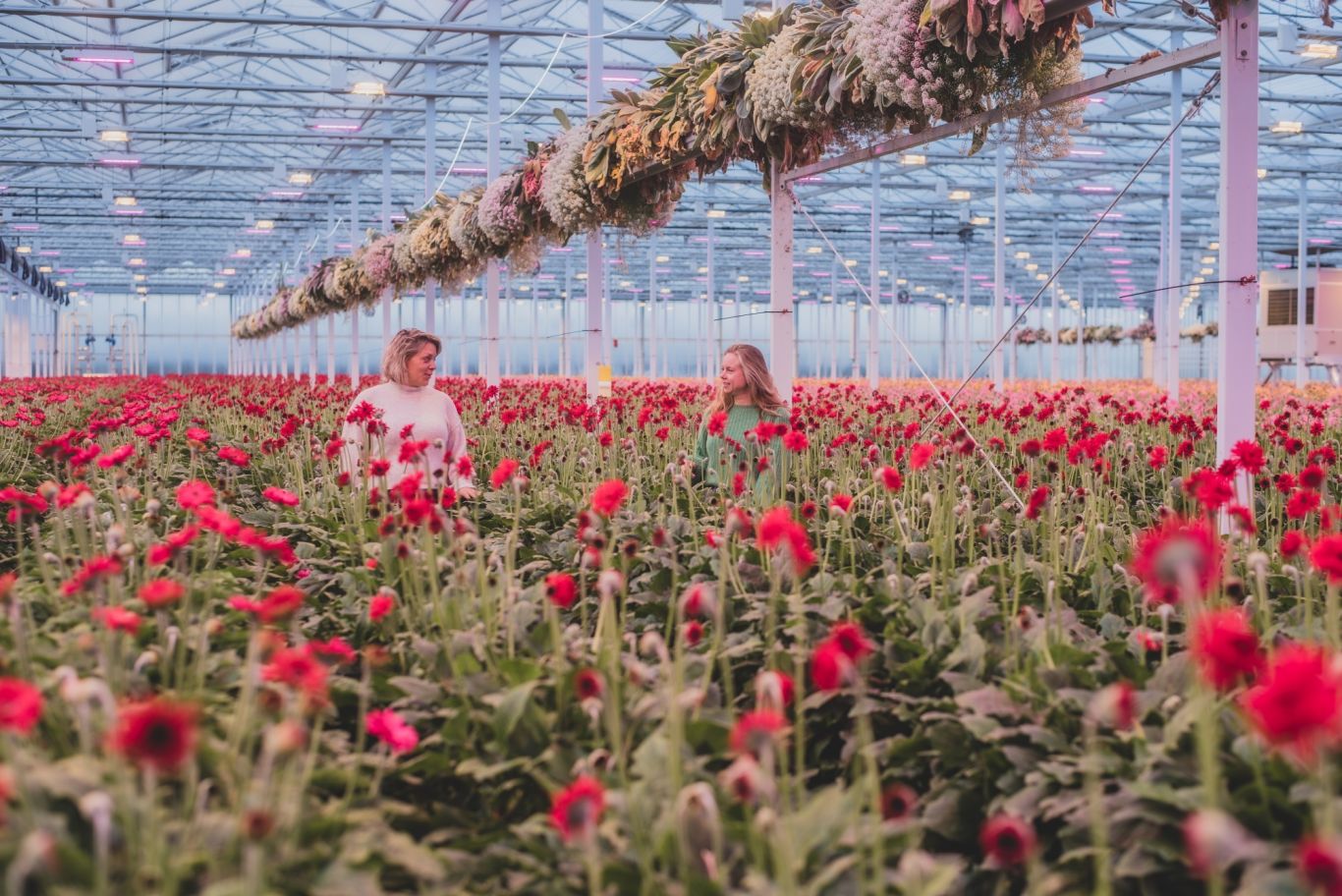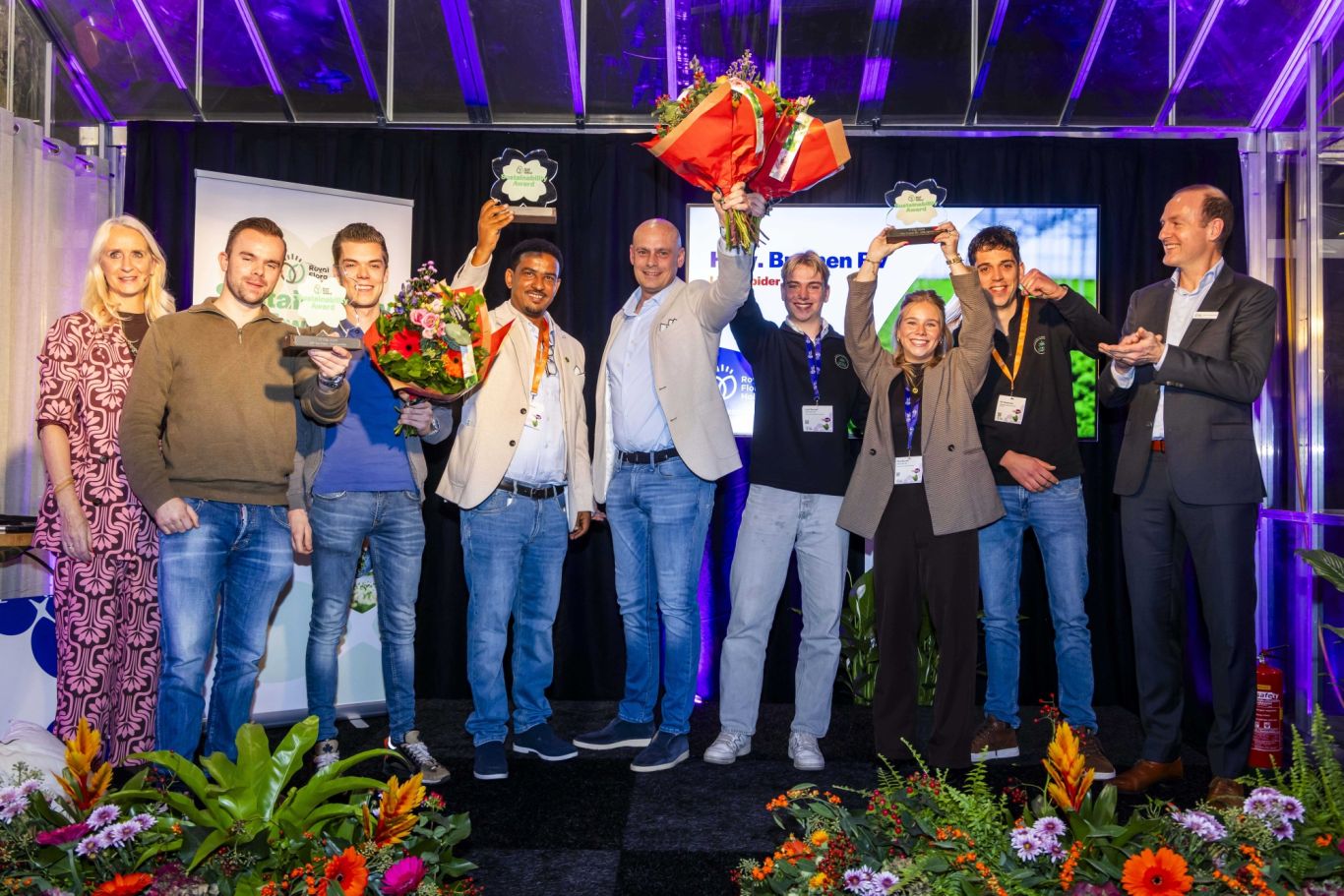“Certification encourages sustainability that will keep the industry future-proof” Jeroen Oudheusden, director of FSI
September 5, 2024

The floriculture sector is taking big steps to stay future-proof. From Royal FloraHolland we like to highlight different perspectives on this subject. That is why today we let Floriculture Sustainability Initiative (FSI) do the talking. FSI is a global non-profit initiative with members from all over the sector working together to make the floriculture sector more sustainable. We spoke with Jeroen Oudheusden, FSI's executive director.
“Certification plays an important role in making the sector more sustainable by making both compliance and sustainability visible. Reliable data from certification has become a basic prerequisite to encourage both improvements and innovations and certainly also to reinforce the wonderful stories about the role of flowers and plants in our daily lives. That is why growers and trade have recently agreed that from January 1, 2026, only certified floriculture products will be offered and purchased.
When you lay down such a requirement, you also want certification to be achievable for all growers who choose to sell on the international marketplaces. We have confidence in that. Also because we already see that by far the majority of the traded volumes meet the set requirements. And for those who have not yet succeeded, as in the case of growers in areas where no recognised certificates are available and for small-scale growers, for example, we will do our best to arrange this.”
Specifically for the latter group of small-scale growers, we saw in recent years that achieving the set requirements proved unfeasible from workability and costs. These growers, often producers of special and seasonal products, have specific characteristics that are not always covered by the current systems. It was therefore decided to develop a more specific certification scheme so that they too can continue to contribute to the sustainability of the sector and maintain their place in the market.
By creating a special working group to work with various partners on this “simplified” scheme, FSI offers a viable route for certification. FSI members have collectively established requirements that each grower must meet, divided into 3 pillars - GAP (e.g. MPS-GAP or GLOBALG.A.P. Flowers & Ornamentals), environmental pillar (e.g. MPS-ABC or GLOBALG.A.P.-IDA) and a social pillar. The new scheme for small-scale growers aims to combine all three pillars to contribute to improved workability and affordability.
This will enable small-scale growers, like all other growers, to meet the sustainability requirements demanded by the market and actively contribute to keeping our colorful sector future-proof.”
Read more information about certification here.
“Certification plays an important role in making the sector more sustainable by making both compliance and sustainability visible. Reliable data from certification has become a basic prerequisite to encourage both improvements and innovations and certainly also to reinforce the wonderful stories about the role of flowers and plants in our daily lives. That is why growers and trade have recently agreed that from January 1, 2026, only certified floriculture products will be offered and purchased.
When you lay down such a requirement, you also want certification to be achievable for all growers who choose to sell on the international marketplaces. We have confidence in that. Also because we already see that by far the majority of the traded volumes meet the set requirements. And for those who have not yet succeeded, as in the case of growers in areas where no recognised certificates are available and for small-scale growers, for example, we will do our best to arrange this.”
Specifically for the latter group of small-scale growers, we saw in recent years that achieving the set requirements proved unfeasible from workability and costs. These growers, often producers of special and seasonal products, have specific characteristics that are not always covered by the current systems. It was therefore decided to develop a more specific certification scheme so that they too can continue to contribute to the sustainability of the sector and maintain their place in the market.
By creating a special working group to work with various partners on this “simplified” scheme, FSI offers a viable route for certification. FSI members have collectively established requirements that each grower must meet, divided into 3 pillars - GAP (e.g. MPS-GAP or GLOBALG.A.P. Flowers & Ornamentals), environmental pillar (e.g. MPS-ABC or GLOBALG.A.P.-IDA) and a social pillar. The new scheme for small-scale growers aims to combine all three pillars to contribute to improved workability and affordability.
This will enable small-scale growers, like all other growers, to meet the sustainability requirements demanded by the market and actively contribute to keeping our colorful sector future-proof.”
Read more information about certification here.
-
Did you find this interesting?
Then share this article


